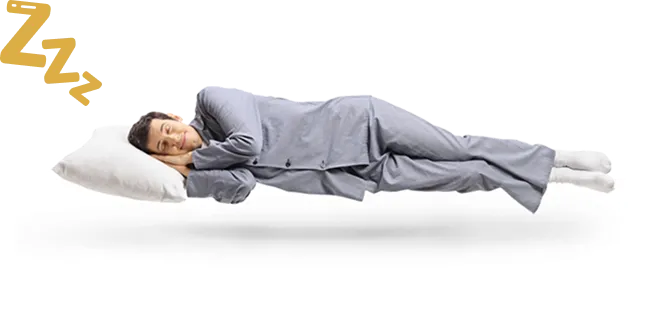Sleep & Well Being
March 2019The Clocks Go Forward: How Will it Affect Your Sleep?
It’s that time of year once again, when the clocks are pushed forward to signal the start of British Summertime. Of course, this brings many positives with it, including longer summer evenings, lighter mornings and the promise of warm weather. However, the only drawback is that you do lose an hour of sleep time.
You’re probably thinking that one hour won’t make that much of a difference to the quality of your sleep, but we’re here to tell you that it really does. Suddenly losing that extra hour, and you may find that getting out of bed on Monday morning is a lot more difficult than usual.
Any change in the clocks, forwards or backwards, may disrupt your circadian rhythm. This means your internal body clock will end up out of sync, at least for a few days.
Adapting to the lost sleep time

Generally, your body will be quite good at adjusting to one hour of change, so you should start to feel more settled with your sleep time within a day or two. With an established sleep pattern already in place, you should easily adapt, especially if you prepare for the missed hour by going to bed earlier the night before.
However, if like many other people, you already don’t get enough sleep you will feel the impact of the change a lot more. You won’t wake up refreshed, instead, you may find that you’re feeling irritable, moody, and have less concentration due to fatigue.
How to reset your internal clock
The best thing you can do to prepare for the clock change is change when you go to bed. It doesn’t have to be a huge change to your sleep schedule, as moving your bedtime back by just 10 minutes in the days approaching the clocks going forward, will work wonders.
Getting some fresh air will help reset your biological clock, so ensure that you go out in the afternoon for a walk. Exposing yourself to more natural or artificial light the following morning will allow your body to suppress melatonin levels, making you feel less sleepy.
It goes without saying that you should limit your caffeine intake as this can certainly prevent you from drifting off. Get some exercise, but make sure you don’t do anything too close to bedtime. Turn off any screens at least an hour before you’re ready for bed as well.

If you’ve not turned your mattress in a while then the clocks going forward should be a timely reminder. Did you know that turning and rotating is essential to ensuring your mattress lasts longer? Also if you don’t turn it you run the risk of experiencing settlement leading to a bumpy nights sleep, not to mention damaging your mattress in the long run. (We have plenty of detail here on how to look after your mattress for a long and happy bedtime)
Your sleep environment is obviously important for getting a good night’s sleep, so make sure it’s cool, quiet, dark and clutter free. Following these steps in the lead up to the clocks going forward, and you will definitely increase your chances of gently drifting off to sleep and staying asleep.
Remember, in order to get the most relaxing, soothing, satisfying and comforting sleep experience possible; you need the right mattress to sleep on. We have over 1900 5 star reviews of our Hand Made in the UK mattresses. If you’re having sleep drama why not ask one of our friendly bed geeks for advice?
To find out more, or if you have any questions, please get in touch with us on 0161 437 4419.

Dreaming of the perfect nights sleep?

Ask us a question
There are over 6000 questions and answers submitted by you on all questions about mattresses and bed problems. Enter a keyword such as Vi Spring, John Lewis beds, bad back or Memory Foam and see if your question has already been answered.
If you can’t find an answer in knowledge hub, ask a new question. We aim to respond to all questions within one working day.
Newsletter
Enter your email to join our newsletter. We’ll send you occasional news and mattress expertise.
